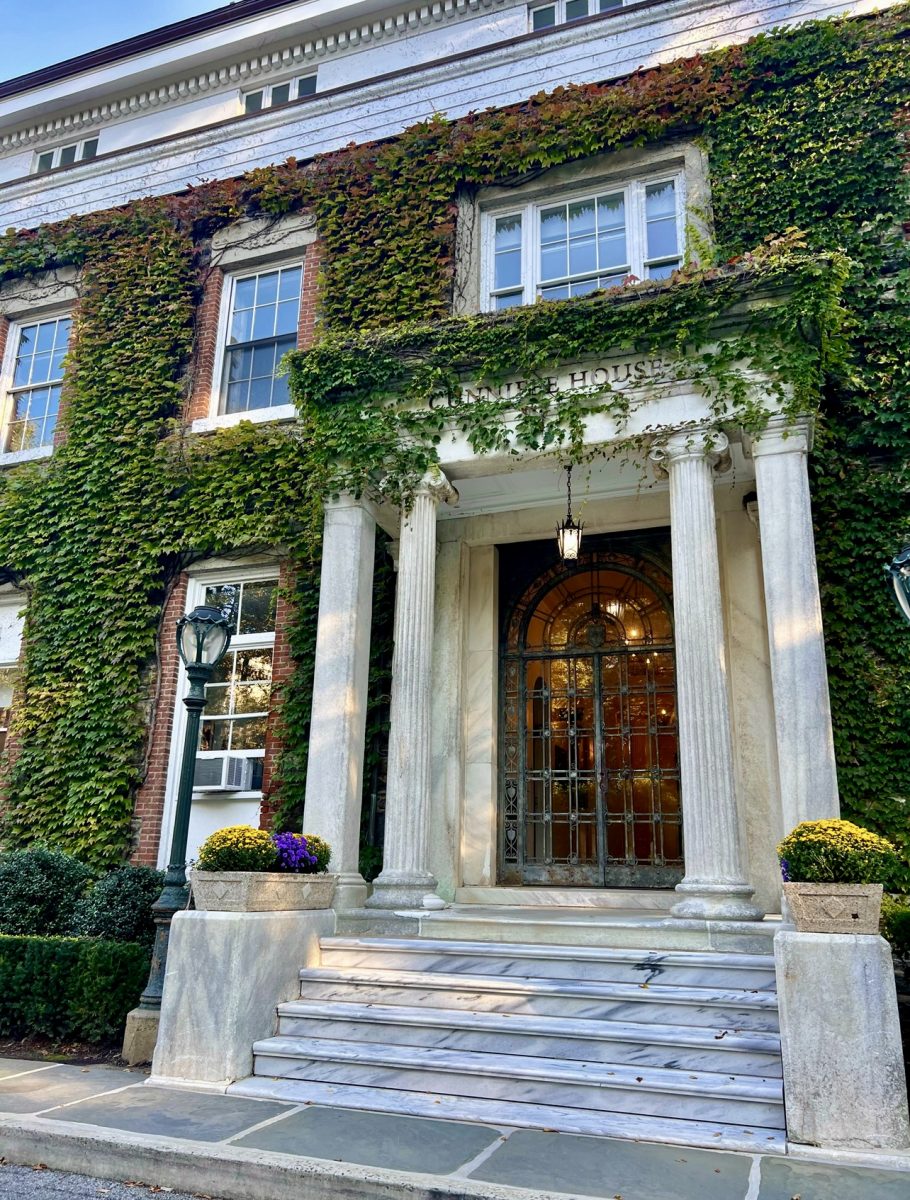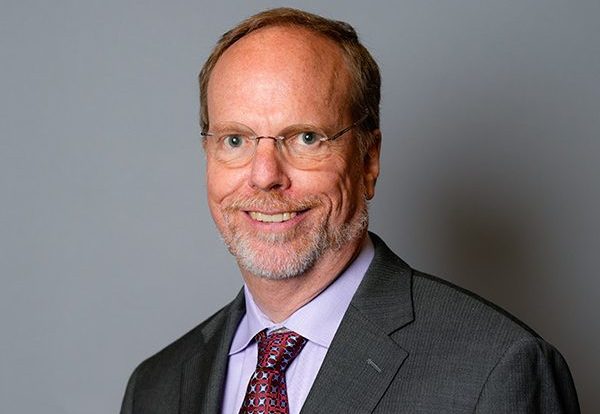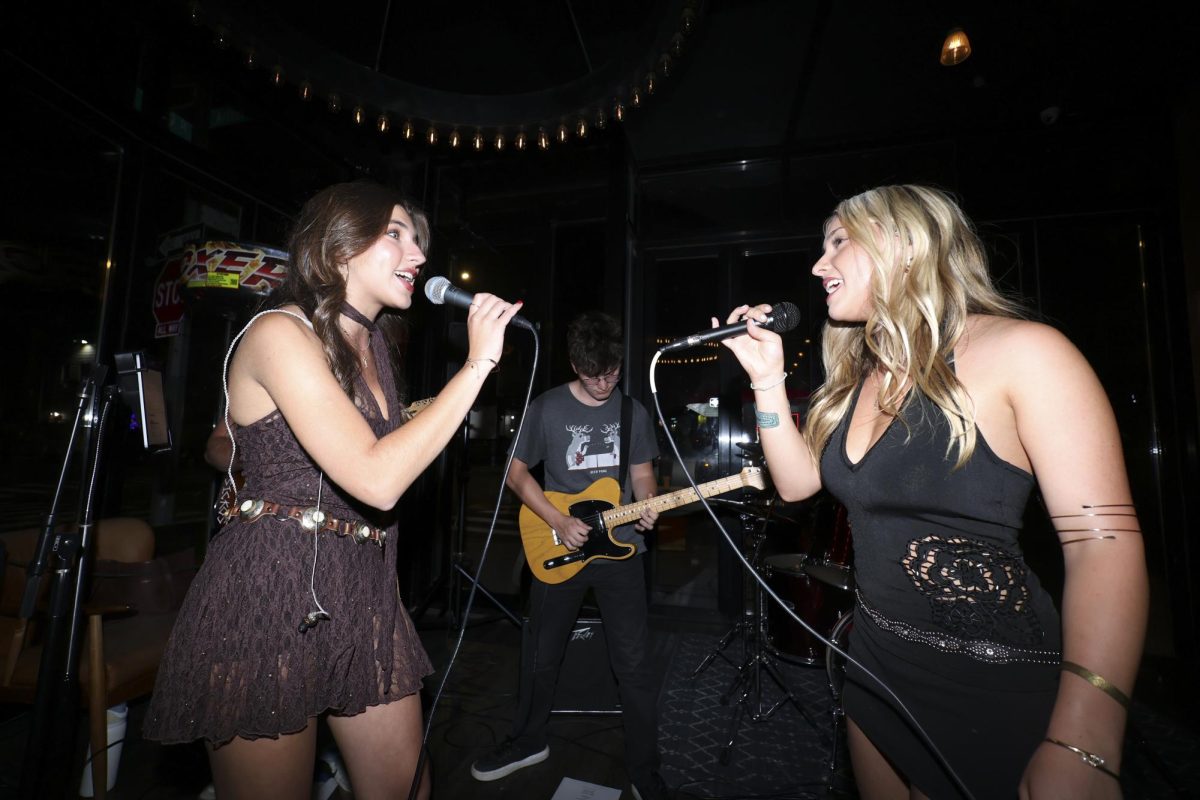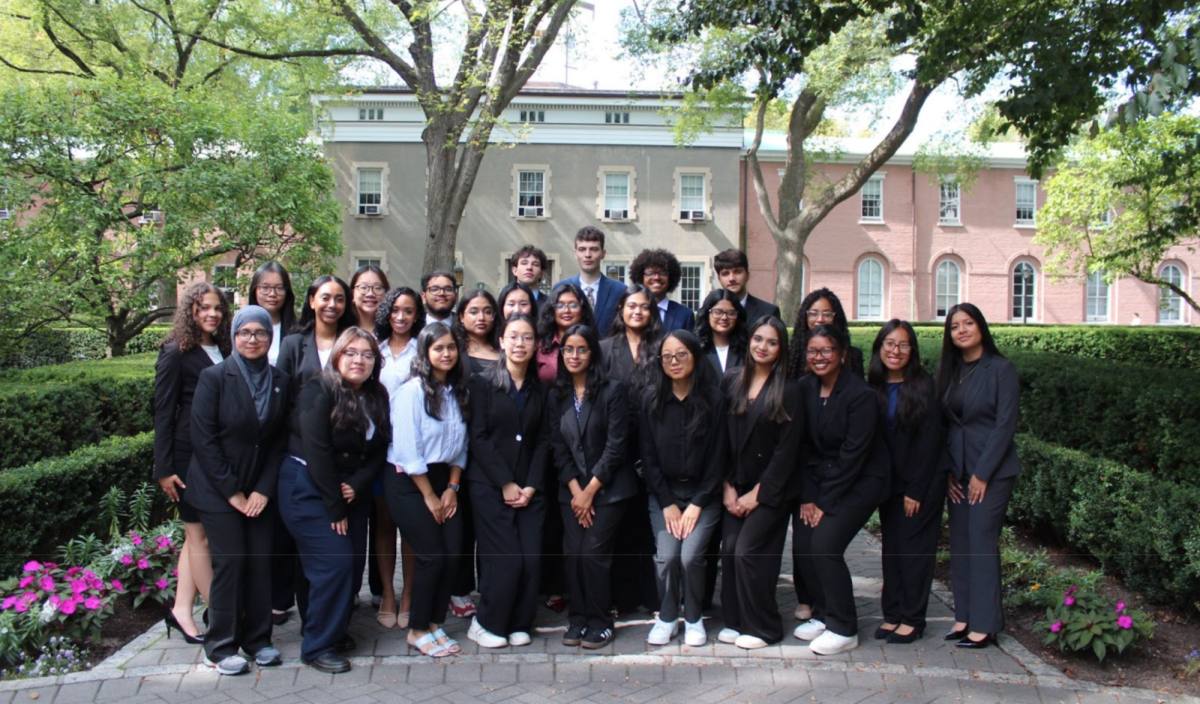Fordham has named Margaret “Meg” Konkel, Ph.D., as the inaugural senior director for a learning center that is in development at Fordham. In her new position, she will aid faculty in navigating challenges that generative artificial intelligence (AI) presents to the classroom setting while strengthening their teaching practices.
Konkel, who has an individual interdisciplinary Ph.D. in design education and psychology, arrived on Fordham’s campus six weeks ago to begin her new position as the inaugural senior director of the Center for Educational Innovation, a university-wide initiative that will be centered on faculty development. Konkel spent the last four years at Radford University, where she taught design thinking at the Master of Fine Arts level and worked in faculty development. Now, Konkel has been charged with building a center that she says will centralize faculty support that had previously been scattered across departments.
“I am the director of a place that doesn’t even exist yet, so a lot of what I’ve been doing since I’ve gotten here is talking to people who are doing faculty development already and figuring out how we can work together, or how I can get out of their way,” Konkel said.
According to Fordham University English professor Anne Fernald, Ph.D., Fordham once had a Center for Teaching Excellence that was initially directed by the late professor Anne Mannion, Ph.D., and was succeeded by Erick Kelemen, Ph.D.. Fernald said that she often worked with the center and offered workshops for faculty development, but that when Kelemen left Fordham, the center was “disbanded.”
Eventually, Fernald served as the special advisor to the Provost for Faculty Development from 2019 to 2023, a role she said, in an email, operated with “no center, no budget, and no staff.” Fernald said she only had $5,000 a year to work with, so she led a smaller initiative to aid faculty transitioning to online and hybrid learning during the COVID-19 pandemic. However, she stepped away because she felt that she was ultimately not the right fit for the position.
“I wish Meg the best and have already heard good things about the programming she has offered,” Fernald said. “Having places where faculty can gather and learn about teaching with and from each other can only benefit all of Fordham.”
With the new center, Konkel hopes to create a more permanent learning space that will become a hub for faculty development. Her early work at Fordham has consisted of asking faculty about their needs and how she can assist them. Konkel said that the responses she has received from faculty have all regarded one large challenge: the immersion of generative AI and its impact on collegiate academia.
“I’ve been designing the center, and I’ve been really trying to layer my ideas for the visioning of the center that happened a couple of years ago and conversations that are happening today on this campus, particularly the context of generative AI,” Konkel said. “I believe that generative AI is also a faculty identity problem because when a faculty member believes … their core identity is rooted in knowledge creation, AI is a big threat.”
Konkel is not the first faculty member to address generative AI. After Fernald stepped down from her position as the special advisor to the Provost for Faculty Development, Fordham philosophy professor Judith Jones, Ph.D., stepped in to fill her position in the fall of 2023. Jones said that at the center, she held sessions on generative AI and how to incorporate it into the classroom.
“We had many sessions on AI and creative approaches to either integrating it or at least bringing ourselves around it in at least some informed way, aware that our students will graduate into a world deeply inflected by AI,” Jones said. “I talked to other teachers elsewhere, and they’ve all stopped assigning papers. They’ve stopped assigning laptop exams because of the distrust issue, but we don’t want to distrust our students.”
Jones’ interim conversations laid the groundwork for Konkel, but Konkel’s new job will help institutionalize some of this previous work. Konkel said that the center will not provide answers to the problem of generative AI, because there’s no right or wrong answer to it, but it will try to figure out how to navigate it while supporting faculty.
“We’re not going to solve it. No one’s going to solve it. But we have to actually figure out how to navigate it and we have to support faculty in thinking about how they’re going to navigate it,” Konkel said. “Generative AI in higher education is what we in the design profession call a ‘wicked problem.’ There’s no one answer to it, because the problem is always evolving.”
Konkel said that in the conversations she has had with faculty so far here on campus, she has talked about how to “get creative” in their work and teaching.
“I’ve had conversations with faculty about how to get more creative in what they’re doing, how to do more problem-based learning or active learning … I think faculty on this campus love and want to trust their students, and so how do you balance that with this kind of sense of threat … without taking it out on the students? It’s really hard,” Konkel said.
Many of Konkel’s ideas around conquering the problem of generative AI in the classroom stem from her knowledge of what the “science of learning tells us about how our brains learn things.”
“What we know from brain science is that the people whose neurons are firing the most in the room, in the classroom, are the ones who are doing the learning,” Konkel said. “The trick for faculty is to make the students do more of the work, get things very hands-on, make things very interactive and get the students actually doing the work … Faculty love their fields and sometimes, they love talking about them, but in a traditional lecture model, the faculty’s neurons are the ones that are firing most. So, how do we shift that? I think that’s the big idea that is underneath any work that I’m doing with faculty here.”










































































































































































































